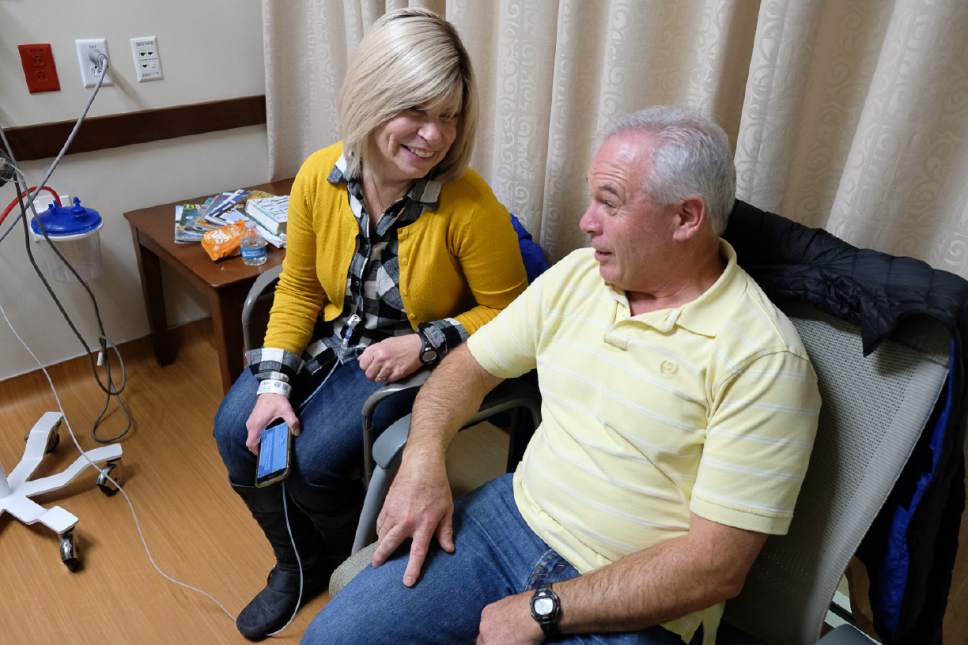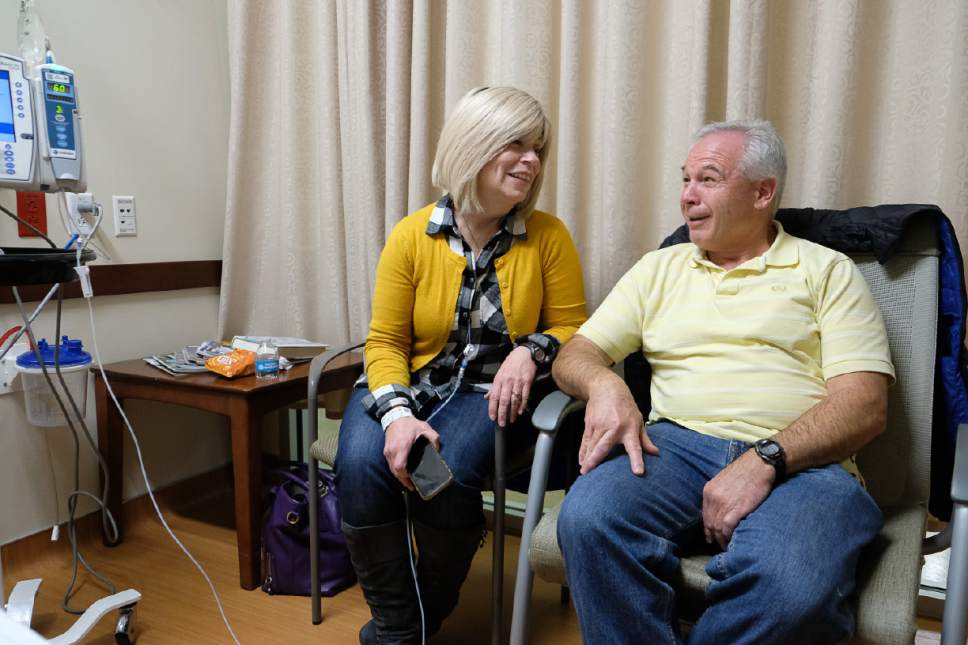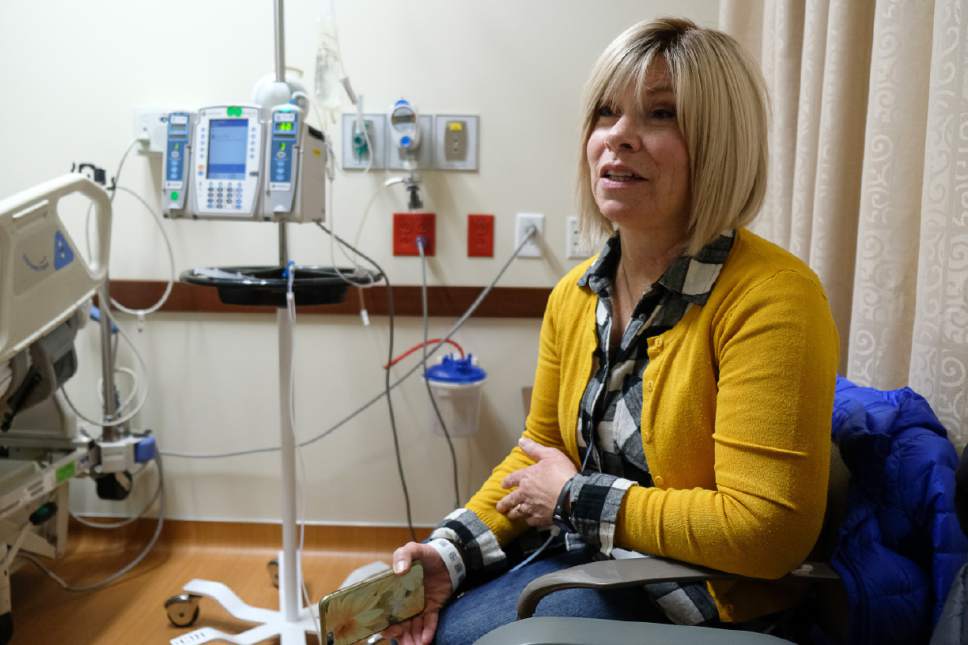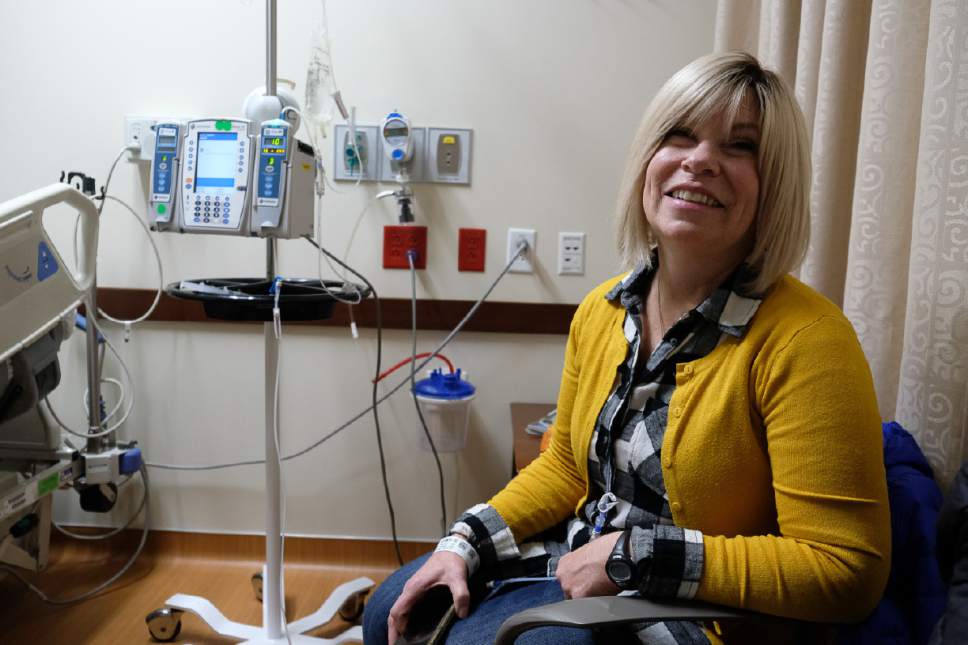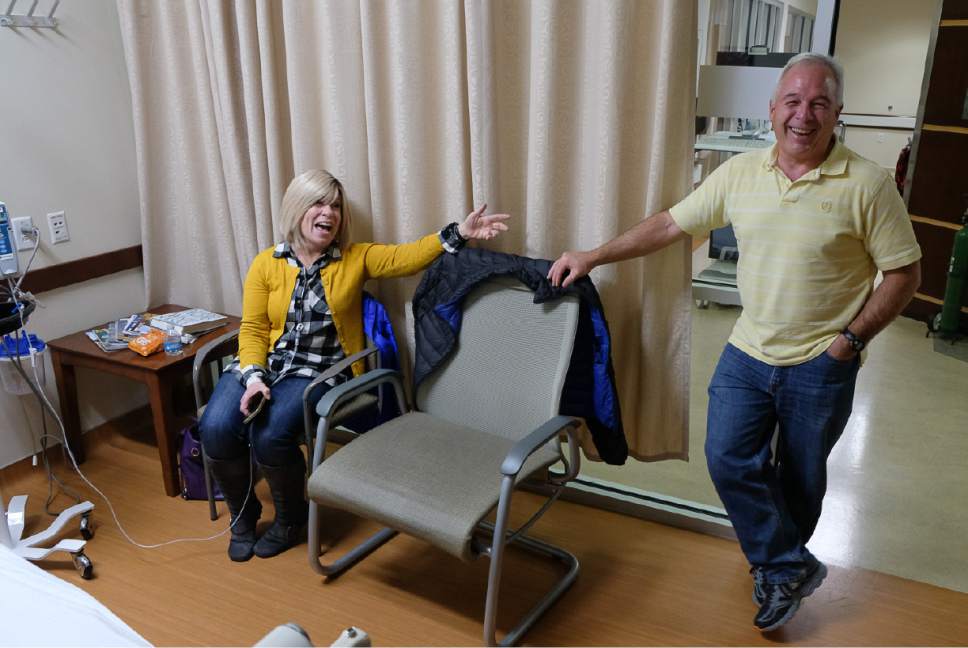This is an archived article that was published on sltrib.com in 2017, and information in the article may be outdated. It is provided only for personal research purposes and may not be reprinted.
The pain in Marilyn Southwick's right hip wouldn't quit.
The avid hiker and biker from Ogden found herself needing uncharacteristic breaks during exercise. She chalked it up to getting older. She was in her 50s, after all.
But it just got worse. Then, doctors told her the breast cancer had come back for a third time — and this time it spread to her bones.
Nearly seven years later, Southwick's life centers on long-term cancer management and remaining upbeat. Despite hip replacement surgery and undergoing chemotherapy three times monthly, the disease has spread to her other hip, her ribs, her shoulder and her knee.
"Pretty much where I have bones, I have cancer," Southwick, 58, said with a laugh.
But a new Huntsman Cancer Institute study — published this week in the journal Science Translational Medicine — offers promising results for Southwick and similar cancer patients and even the prospect of a new drug to halt breast cancer's destruction of bones.
Institute researchers were inserting breast cancer cells into mouse bones to study how the disease spreads when they discovered the bones degenerated significantly, said Alana Welm, institute investigator and University of Utah associate professor of oncological sciences.
That, Welm said, is a rarity in mice.
Turns out, some breast cancer cells were creating a protein, Macrophage Stimulating Protein, that was then being removed by another protein, known as RON, which caused bone damage.
Welm and other researchers tried "knocking out" the gene that contains the RON protein. The bone destruction largely stopped.
"We found it completely protected the bones from destruction," said Welm, who led the study. "We saw probably 10 times less bone destruction, almost down to nothing. Even when the mice got cancer in their bones, the bones stayed in much better shape."
Huntsman researchers collaborated with the biotechnology company Aslan Pharmaceuticals, which was developing a drug to inhibit the RON protein. Mice given the drug showed positive results and were able to walk longer and did not suffer fractures, according to the study.
Scientists with Aslan were conducting a clinical trial of the drug in Australia with men and women mostly above 50 with various forms of cancer, according to a Huntsman news release. Huntsman researchers ran blood tests on the about 20 patients in the trial before and after they received the drug, Welm said.
Almost two-thirds of those patients showed signs of decreased bone damage, Welm said, and some showed signs of actual bone repair.
Welm currently is developing a clinical trial for a small number of breast cancer patients — about 20 — and hopes to begin enrolling next year.
"The hope is that in two years we'll know the potential [for the drug] in breast cancer patients with bone metastasis," Welm said. "If that's positive, we'll move forward as quickly as we can to do larger trials."
If all goes well, Welm anticipates the drug may eventually be used in conjunction with other cancer therapies.
Though she isn't receiving the drug, Southwick said its future possibilities are a source of optimism.
"It's the fact that [researchers] are making that progress and giving hope for things like improved quality of life and prevention of further destruction of our bodies," she said Thursday shortly before undergoing another round of chemo.
With support from her husband Scot, Southwick said she is staying positive and active. She hopes to start bike riding again soon.
"My doctors tell me I can do anything I want to do," she said. "But if they told me I can't do it, I probably would turn around and show them I can."
Twitter @alexdstuckey


